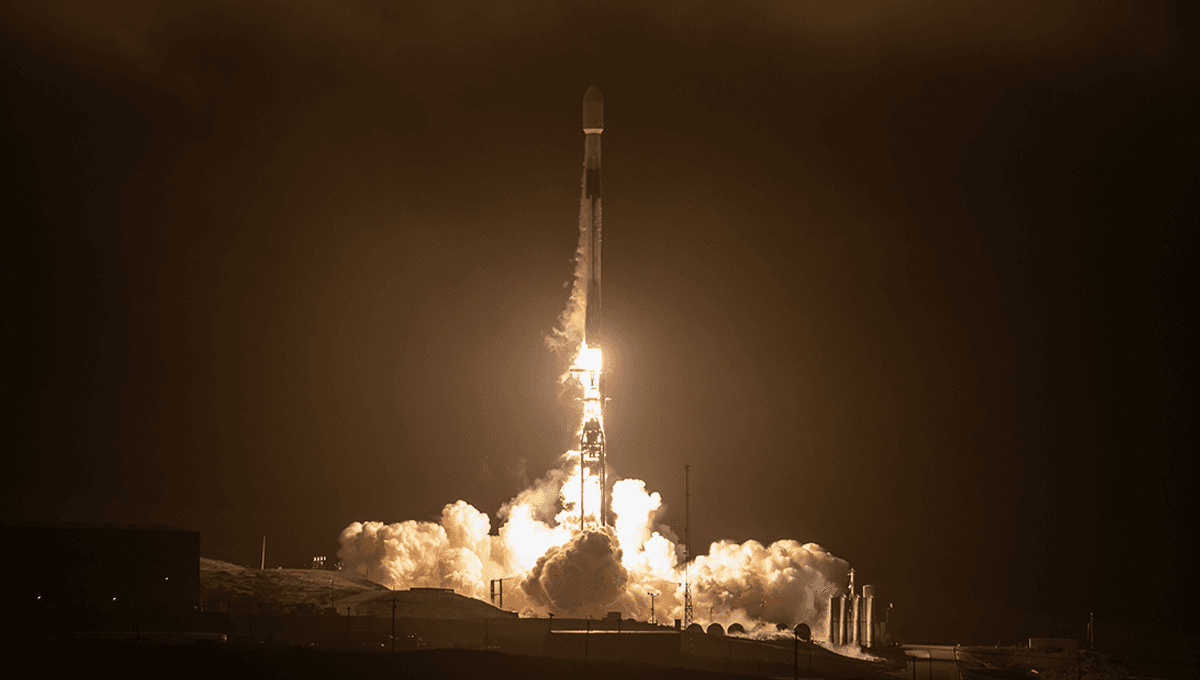
On Monday, SpaceX made space history, as four astronauts were launched into a pole-to-pole orbit not traveled by any human before them. But judging by the reports of one of the private astronauts, their time in space didn’t get off to a great start, after the vomiting began.
Though the Fram2 mission is a private one on behalf of cryptocurrency billionaire Chun Wang, the crew has a few scientific tasks.
“During their multi-day mission, Dragon and the crew will explore Earth from a polar orbit and fly over Earth’s polar regions for the first time,” SpaceX explains. “They will also conduct 22 research [experiments] designed to help advance humanity’s capabilities for long-duration space exploration and understanding of human health in space. Throughout Fram2’s time on-orbit, the crew are planning to take the first X-ray in space, perform exercise studies to maintain muscle and skeletal mass, and grow mushrooms in microgravity.”
While the launch went well and the crew were placed into their unusual orbit, things took a turn when the crew’s orbit gave them the experience of weightlessness. The four astronauts, flying on an orbit nobody has traveled before, began vomiting profusely.
“The first few hours in microgravity weren’t exactly comfortable,” Chun Wang explained on X. “Space motion sickness hit all of us – we felt nauseous and ended up vomiting a couple of times. It felt different from motion sickness in a car or at sea. You could still read on your iPad without making it worse. But even a small sip of water could upset your stomach and trigger vomiting.”
On that first day in space, not a lot of work got done.
“[Pilot Rabea Rogge] spent some time on the ham radio, making contact with Berlin,” Wang added. “No one asked opening the cupola on the first day – we were all focused on managing the motion sickness. We had a movie night watching our own launch and went to sleep a bit earlier than scheduled. We all slept really well.”
It should be noted that what they felt, causing their disorientation and sickness, is not a lack of gravity. Even at the International Space Station’s (ISS) orbit, astronauts experience around 90 percent of the Earth’s gravity.
“Some amusement parks have free-fall rides, in which a cabin is dropped along a tall tower. If a person let go of an object at the beginning of the fall, the person and the object would fall at the same acceleration,” NASA explains. “Because of that, the object would appear to float in front of the person. That is what happens in a spacecraft. The spacecraft, its crew and any objects aboard are all falling toward but around Earth. Since they are all falling together, the crew and objects appear to float when compared with the spacecraft.”
After that first night, the crew adjusted to their new gravity environment.
“By the second morning, I felt completely refreshed,” Wang continued. “The trace of motion sickness is all gone. We had breakfast, took a few X-ray images, and opened the cupola three minutes after midnight UTC – right above the South Pole.”
The astronauts are far from the first humans to barf in space. It regularly happens when astronauts and cosmonauts arrive at the ISS.
“When we first get to space we feel sick. Your body is really confused. And so, you know, you’re dizzy, your lunch is floating around in your belly ’cause you’re floating, and, and what you see doesn’t match what you feel. So you want to throw up,” Canadian astronaut Chris Hadfield explained in 2013, before extolling the virtues of the space barf bag, complete with its own liner to wipe any excess vomit off your face after you’re done. “So yes, astronauts do occasionally get sick in space, but we have special barf bags to deal with it.”
Now adjusted to freefall, the crew is performing tasks and is expected to stay in space for three to five days before returning home.
“After safely returning to Earth, the crew plans to exit from the Dragon spacecraft without additional medical and operational assistance,” SpaceX adds, “helping researchers characterize the ability of astronauts to perform unassisted functional tasks after short and long durations in space.”
Source Link: Crypto Billionaire And 3 Private Astronauts Launched To Space. Then The Chundering Began.